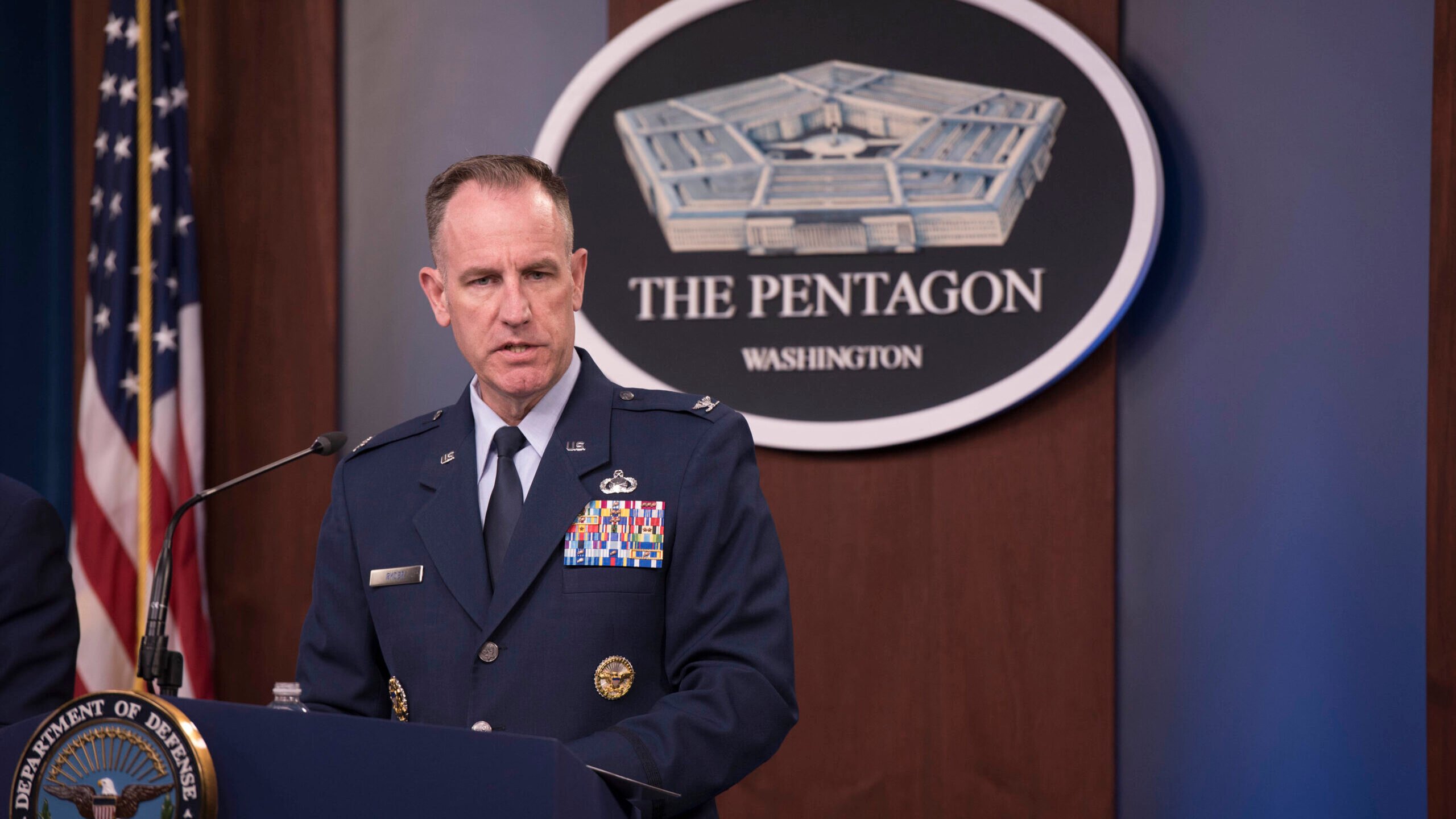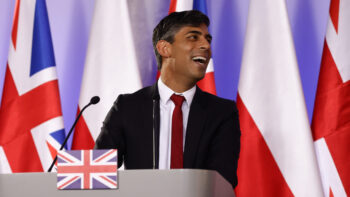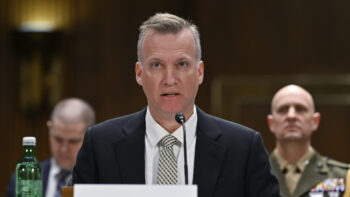
Joint Staff Spokesperson Air Force Col. Patrick S. Ryder addresses the media during a press briefing at the Pentagon, Washington, D.C., Sept. 19, 2019. (DoD photo/ Petty Officer 2nd Class James K. Lee)
Edited at 8/4/2022 at 4:30 ET to add an expert comment.
WASHINGTON: The Air Force’s top public affairs official has been tapped to become the next Pentagon spokesman, a decision that will see a uniformed member of the military take a job typically held by a civilian.
Defense Secretary Lloyd Austin announced today his appointment of Brig. Gen. Patrick Ryder for the Pentagon press secretary position. Ryder currently serves as the Department of the Air Force’s director of public affairs, overseeing media operations for the Air Force and Space Force, but will move to his new role later this month.
“Pat will fill a critical role, leading our efforts to provide timely, accurate information to the media, and through the media to the American people,” Austin said in a statement. “I am confident that I will benefit from his counsel, and that the American people will benefit from his ability to clearly and consistently communicate our efforts to protect the United States and its interests around the world, take care of our people, and strengthen our unrivaled alliances and partnerships.”
From 2017 to 2019, Ryder served as the spokesman for the Joint Chiefs of Staff. Notably, he previously served as Austin’s spokesman when Austin led US Central Command from 2013 to 2016, meaning there is a pre-established relationship and a level of trust from Austin to Ryder.
Ryder replaces John Kirby, who left the Pentagon in May to become the National Security Council coordinator for strategic communications. Ironically, Kirby was the last man to serve as chief Pentagon spokesperson in uniform, which he did from 2013 to 2015 during the Obama Administration, at which point he retired to become the State Department spokesperson. When Kirby returned as Pentagon spokesperson in early 2021, it was as a civilian.
CNN, which first reported Ryder’s appointment, stated that he will likely remain in uniform “in the near term.”
While it is not unprecedented to have an active military official as the chief spokesman, it can create issues. And while Ryder is well-respected by members of the Pentagon press corps, those issues could potentially to constrain him in his new role.
As neutral figures in uniform, servicemembers cannot promote White House policies or political decisions. So, while Ryder may be able to talk about operations, personnel issues or logistics, he would be constrained in addressing political matters — whether that be Rep. Nancy Pelosi’s trip to Taiwan or criticism from political pundits that the US military has become too “woke.” He also may be constrained in talking larger geopolitical strategies, such as whether the administration is prioritizing threats correctly, or even in calling on Congress to act on the budget.
However, Kori Schake, director of foreign and defense policy at the American Enterprise Institute, pushed back on the notion that having a servicemember as Pentagon spokesman could potentially be a problem, saying a uniformed official in the position can often potentially provide reporters with more context and noting that the Pentagon spokesperson speaks on behalf of the US military — not just the defense secretary.
“Having a uniformed spokesperson in the Pentagon might actually be advantageous, because that would force the secretary to be the spokesman on political issues, which is more appropriate than having the departmental spokesperson,” she said.
Senate passes $95 billion foreign aid bill, as DoD eyes next Ukraine weapons package
Additional aid for Ukraine could be made available “within days” said Pentagon Press Secretary Maj. Gen. Pat Ryder earlier today.

























